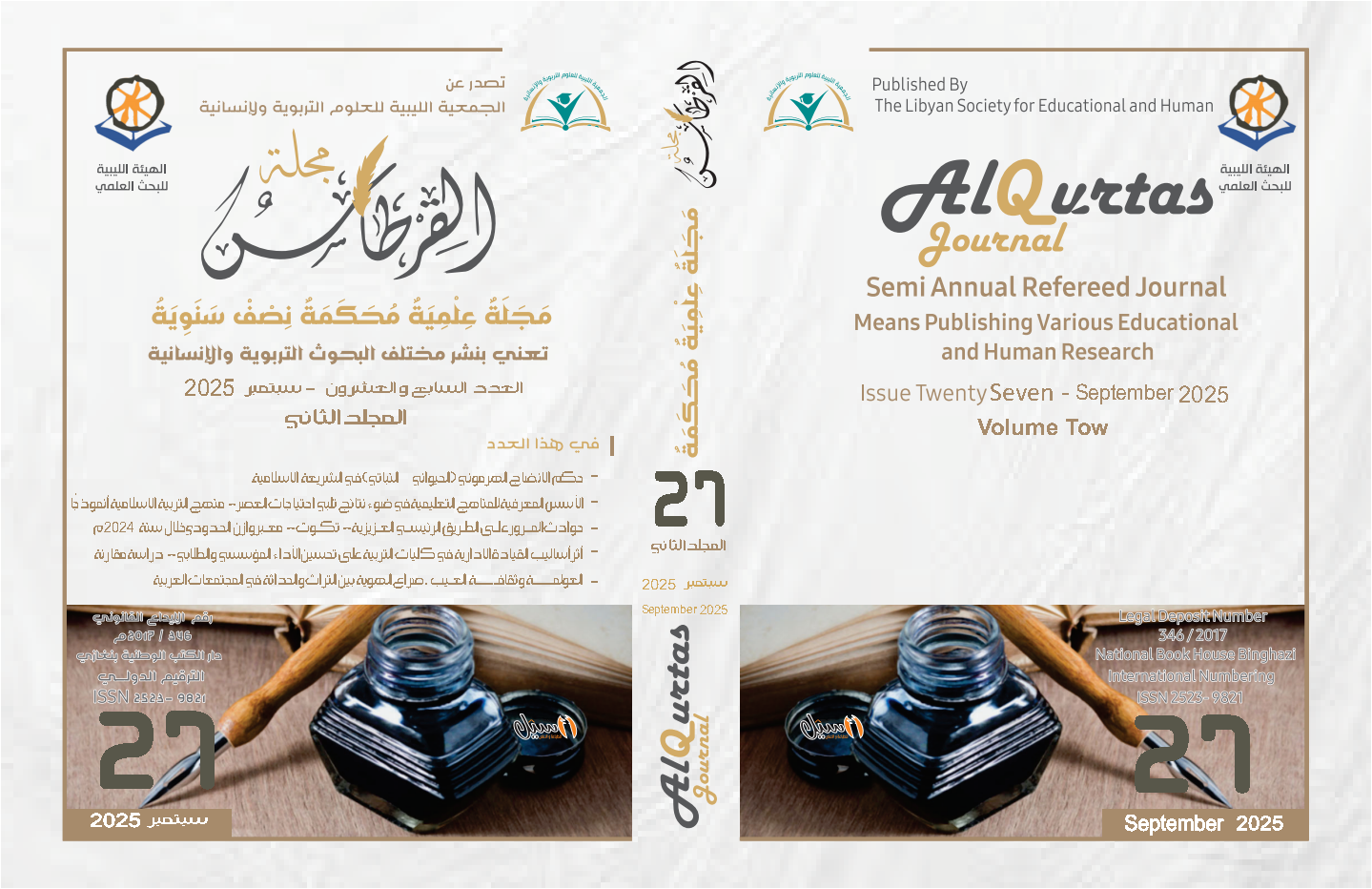Globalization and the Culture of Shame: Identity Conflict Between Tradition and Modernity in Arab Societies
Main Article Content
Abstract
This research examines the dialectical interactions between globalization and the culture of shame in Arab societies, shedding light on how individual and collective identities are being reshaped. The study begins by defining culture and globalization according to Taylor (1971), Giddens (2000), and Held & McGrew (2007), then employs discourse analysis and critical theory to trace the transformation of the culture of shame from a social control mechanism to a form of resistance against the “globalization of values.” The findings reveal a value shift that places individuals between adhering to a heritage that no longer meets contemporary demands and engaging with a rootless modernity. The paper further explores the literary representations of this identity conflict in the works of Ahlam Mosteghanemi and Liana Badr, where the novel becomes an existential battleground. The study concludes that globalization generates hybrid identities (Bhabha) while exacerbating existential confusion (Sartre), necessitating a new ethical effort (Abderrahmane, 2009) to reconcile authenticity with modernity.
Downloads
Article Details

This work is licensed under a Creative Commons Attribution-NonCommercial 4.0 International License.

